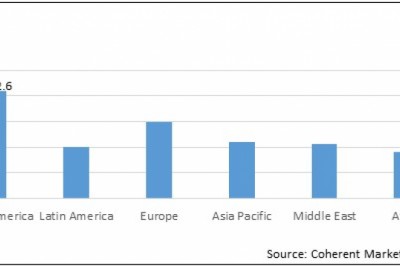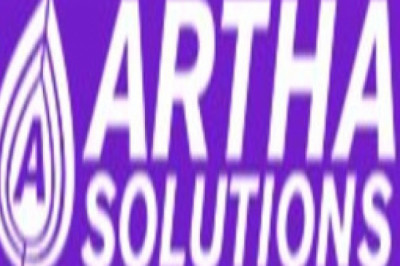views

Introduction
Consumer goods are the nucleus of a consumer economy. Consumer Goods Industry incorporates enterprises that deal with consumer products. From manufacturing to marketing and sale, CGI can be broken down into as many industries as operational processes. Classified into durable(appliances, electronics) and non-durable goods (food, packaged goods), the driving force behind the consumer goods industry is the expansion of markets and innovation.
With major technological advances witnessed in the past decade, the strategic exploitation of technology for operational efficiency weigh on most enterprises. We live in a world where social networks sway consumer opinion in a time when eCommerce is at the forefront of trade. So, the question is how to stand apart in building your brand, marketing it and selling it plentifully in the current scenario? The answer is Enterprise Resource Planning (ERP). ERP is a single software platform that allows enterprises to centrally manage supply chain, warehouse, inventory, workforce, HR, CRM, eCommerce, accounting and finance. Backed with machine learning tools running on artificial intelligence, ERP equips businesses to systematically manage their processes for maximum returns.
At Oodles, we undertake custom ERP software development for specific business needs. Our developers evaluate the prototypical model of a consumer good industry and recommend the most suitable and advantageous ERP design. In this article, we’ll gain an understanding of how to unleash the maximum potential of the consumer goods industry with ERP.
Impediments in the smooth functioning of CGIs
Lack of accessibility
Often, consumer goods companies produce a lot of data with regards to manufacturing, shipping, sales, inventory, and workforce deployed. However, without quick or direct access to this information, managing the production and movement of goods becomes a slow process. Without the vital flow of data, the business tends to become supply-driven and gainless at times.
Operational costs and delays
Successful businesses are backed by exhaustive and minute planning at all levels. Without the right strategies, business processes can become inefficient and incur losses. This results in extra operational costs, delays in services and quality concerns that drive consumers away. It is, thus, essential to have a system in place that improves operational efficiency and maintains quality control.
Rigidity
One of the biggest challenges consumer goods companies face is the need for a scalable platform. Systems that support business models, and tools relevant to particular units and to a growing enterprise need to replace outdated systems.
Benefits of Implementing ERP
ACCESS:
Real-time access to enterprise data is an advantage that gives ERP an edge over other management systems. Accompanied by mobility, this enables managers to access data and make and communicate decisions from any part of the world. It also supports the global nature of markets today by providing a hierarchical access to stakeholders around the world.
QUALITY CONTROL:
Goods can be traced for quality checks and set in reverse logistics if they do not qualify through automation. Technologies like IoT and RIFD come in handy for doing so in real-time and providing operators the opportunity to implement decisions. ERP software solutions equipped with these technologies are game-changers in the consumer goods industry.
PREDICTIVE ANALYTICS
ERP software is inevitably integrated with analytics tools that observe huge datasets and find patterns in them. With the aid of these observed patterns, they forecast future trends around which business strategy can be focused. It enables companies to meet demands and earn customer loyalty.
OPTIMIZED SUPPLY CHAIN
ERP software identifies product movements and cost elements in inventory and assists in managing suppliers and allocation of resources. Consequently, it optimizes supply chain management for increased efficiency.
Features of ERP for the Consumer Goods Industry
1. Managing Warehouse Operations
ERP systems with warehouse picking efficiency enable a quick pick up and put away along with integration with a courier partner. Some ERP allows the creation of a customized process flow and even resource capacity management with abilities to pick by voice or light.
Also Read : Choosing The Right ERP Warehouse Management Software
2. Predictive Analysis
With predictive analytics, enterprises can readily tackle the unpredictable nature of the consumer goods industry. Organizing and stocking inventory as per sale forecasted results in improved returns and reduction in overstocking or understocking incidents.
3. Portals for vendors and suppliers
Owing to globalization, companies now buy raw materials or finished goods, for the consumer goods industry, from suppliers across the globe. The process is further aided by ERP applications where buyers and sellers quote prices, put orders and communicate shipment details.
4. Drop Ship PO’s
Another feature of ERP is that it supports drop ship purchase orders. The ERP generates a purchase order at the time of purchase and automatically communicates it to the vendor. It saves extra expenses and labor.
5. Mobile Location-based service
An ERP system gives the facility to access/share data across a global supply chain. This data, however, needs to adhere to GDPR as per the country. ERP systems allow data screening and sharing in conformity with these rules, therefore, effectively managing the cross-border supply chain.
6. Demand-driven SCM
Striking a balance between supply and demand is a pre-requisite for a successful consumer goods endeavor. With the help of forecasting and predictive analytics, ERP software aid supply chain to be more demand-driven and therefore, customer-centric.
It is, therefore, a profitable venture for consumer goods companies to implement ERP systems. It will not only enhance their operational efficiency but also aid in building a consumer-friendly brand.
Also Read: Overcoming SCM Challenges with End-to-End Supply Chain Management
Oodles’ software solutions for all your ERP needs
We are an ERP development company with a goal of transforming enterprises with our futuristic AI-enabled ERP systems. Our developers hold expertise in custom-designing ERP solutions to best suit enterprise needs. Aligned with your business goals, we provide ERP with WFM, CRM, SCM, and SaaS integrations to optimize your consumer goods enterprise. Get in touch with us to unleash the maximum potential of your business with our Custom ERP services.












